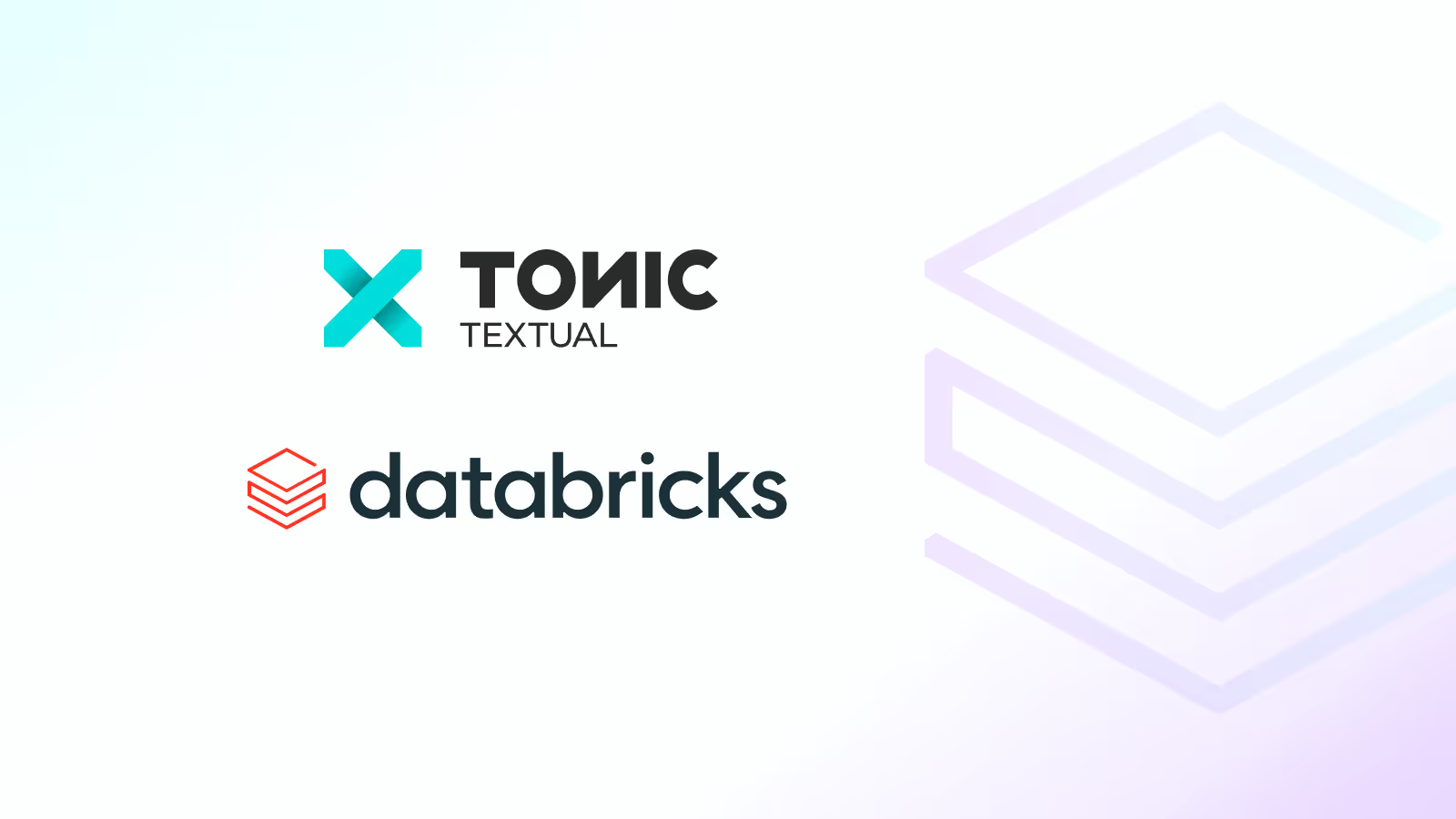Introducing audio synthesis for Tonic Textual: actionable audio, privacy protected

The next frontier of synthetic data just got louder
We built Tonic Textual to empower teams working with unstructured text—freeform notes, messages, logs, and more—with synthetic data that mirrors real-world complexity and applications without compromising sensitive information. Today we’re turning up the volume on that mission.
Introducing Audio Synthesis for Tonic Textual, a powerful new capability that brings the same privacy-first, high-fidelity data generation to recorded speech. Whether it’s a clinician dictating patient notes or a support agent resolving an issue over the phone, your audio data now has the same protections and usability as your text data.
Redact. Synthesize. Or just “bleep” it out.
- Upload audio through the Textual SDK and receive a timestamped transcript, automatically parsed and encoded in JSON
- React or synthesize sensitive entities within transcripts, just as you do with free-text data in Textual data today
- Generate privacy-protected audio files where sensitive information is replaced with audio placeholders (bleeps or even synthesized substitutions using AI-generated audio)
Let your data speak volumes
Audio Synthesis for Textual unlocks teams that rely on voice data but are constrained by regulations and privacy concerns.
- Healthcare applications: Doctors and clinicians are increasingly relying on voice to document patient interactions so that they can spend more time focusing on patient care. Audio Synthesis for Textual makes this data actionable for research, LLM training, and audit workflows, while maintaining privacy and HIPAA compliance.
- Finance and banking: Recorded calls to banks and financial institutions often contain sensitive client information that must be safeguarded in order to protect the integrity of their accounts. These calls can now be easily leveraged for a variety of purposes including training and problem resolution.
- Call centers and customer service: Audio recordings of customer interactions often contain names, account numbers, and other PII. With Textual, those recordings can now be anonymized and analyzed without risk.
- Legal services: Leverage recordings from confidential discussions and testimonials without disclosing privileged information associated with legal clients.
- Human resources: New hire and exit interviews often contain candid, sensitive discussions that, while important to the success of the business, may require anonymization in order to protect candidate and employee confidentiality.
TL;DR: Wherever voice meets sensitive information, Audio Synthesis for Textual allows you to protect and remain compliant, without sacrificing value or utility from the information contained within.
Built for builders
Audio Synthesis for Textual is now available via the Textual SDK, and can be leveraged seamlessly across your existing pipelines. Just upload an audio file, specify your desired redaction or synthesis method, and Textual will deliver privacy-safe outputs that are ready for downstream applications.
Interested in learning more? Visit the Textual documentation or book a demo with an expert at Tonic.ai.


.svg)
.svg)





















.svg)


